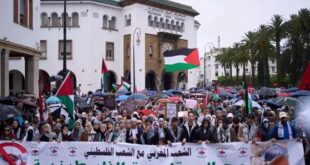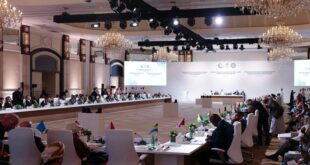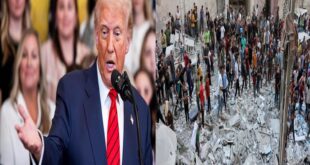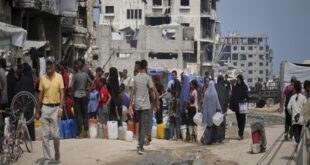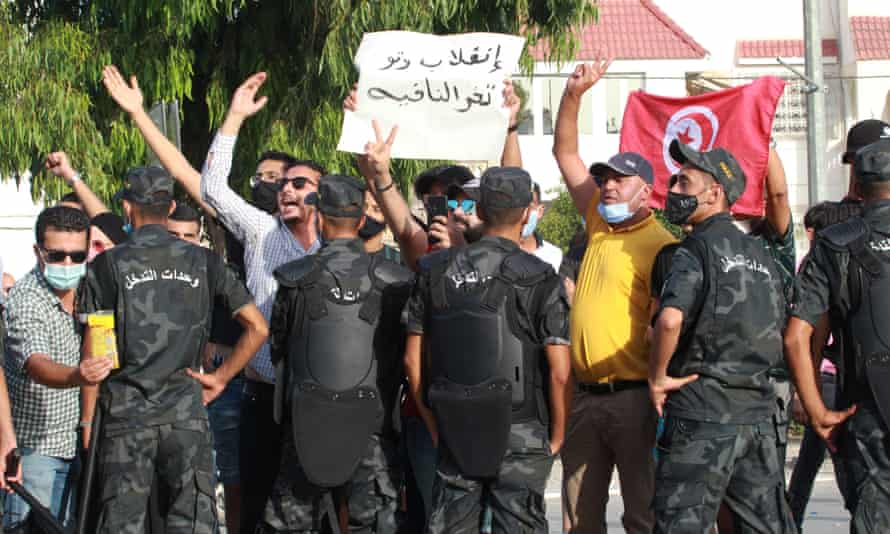
In 2011 a repressive, authoritarian government collapsed because it proved unable to meet people’s demands. Why would its return solve anything?
In 2011 Tunisia was the first Arab nation to topple its dictator, and the only one where genuine democracy survives. But events in the capital, Tunis, suggest that the country is experiencing a counter-revolution. On Sunday the president, Kais Saied, fired the country’s prime minister, dismissed the government and froze parliament. Mr Saied has suspended lawmakers’ parliamentary immunity, a pointed warning to political opponents. It is never a good sign when security forces storm television stations. Demonstrations have broken out – with protesters taking to the streets both in support for the president, and against him. The warmth of the Arab spring has definitely turned into the chill of winter.
The opposition – led principally by Ennahda, the moderate Islamist party with the most seats in parliament – called his actions “a coup”. It’s hard to disagree with that description. But many in Tunisia either shrug their shoulders or, even worse, are drawn to demagogues, religious hardliners and those who praise the country’s former dictatorship. The reason that sections of the population are receptive to either apathy or illiberal notions is that freedom and democracy in Tunisia have not delivered political stability and a prosperous economy. Instead corruption, inflation and unemployment persist. For the past few years Tunisians have taken to the streets to express their dissatisfaction, sometimes.
The pandemic has also exposed how dysfunctional the Tunisian state has become. One survey for Tunisia’s National Institute of Statistics found that one-third of households feared running out of food last year. Yet the government, according to leaked documents, appeared willing to eliminate bread subsidies in negotiations for a $4bn loan from the International Monetary Fund, the fourth in 10 years. Anger over the government’s handling of the pandemic has only been made worse by the level of national debt: loan repayments are now six times the size of the country’s health budget.
It is easy to see how the argument could be made that democratic institutions in Tunisia aren’t delivering what the public needs. But a strongman presidential system collapsed a decade ago because it proved unable to meet people’s demands. The dictatorship survived through brutal repression. What Tunisia needs is for the politicians to adopt a more realistic view of where the country needs to go. A return to autocracy will not guarantee regime stability. President Saied defied the constitution to suspend parliament. His inability to work with a prime minister he picked suggests he is not well suited to a complex polity. His praise of the Egyptian military dictatorship does little to inspire confidence.
Tunisian democracy has been a triumph of consensus politics. Yet coalition government has often meant decisions have been put off for fear of shattering alliances. This has led, particularly after the 2019 elections, to rising support for new, more extreme parties as calls for better living standards and social justice went unaddressed. By huddling closer together, elected representatives appear to have encouraged the political instability they wanted to avoid. However, the country is not bereft of wily politicians. Rachid Ghannouchi, the current speaker of the parliament and co-founder of Ennahda, saved Tunisia’s early democratic transition from collapse once before, in 2013. There is a crisis in Tunisia. This will be defused by seeing the emergency for what it is and addressing its causes – not by insisting on anti-democratic arguments well past their expiry date.





 World Opinions Débats De Société, Questions, Opinions et Tribunes.. La Voix Des Sans-Voix | Alternative Média
World Opinions Débats De Société, Questions, Opinions et Tribunes.. La Voix Des Sans-Voix | Alternative Média

